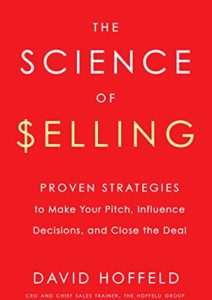Greg was a sales person that I will never forget. He would often barrage prospects with a seemingly endless supply of sarcastic remarks. Though his first quip would usually inspire a grin, as the attempts at humor continued, prospects would become annoyed and then attempt to disengage from the sale. In the end, Greg’s ineffective use of humor cost him sales.
Unfortunately, Greg is not alone. Many salespeople struggle to use humor in ways that enhance their ability to sell. There is no doubt that when used effectively, humor is a valuable sales tool. However, there is also compelling evidence that when clumsily deployed, humor will hinder the sale from occurring.
The good news is that there have been many social science studies that have analyzed how humor can be used to positively change behavior. This research discloses how salespeople can strategically use humor to improve sales effectiveness. What’s more, the research also reveals how not to use humor within the sale.
Using Humor To Sell More
When salespeople use humor effectively it will enable them to more easily accomplish the following three productive sales outcome
#1: Build Rapport
Humor boosts feelings of likeability, which naturally increases rapport. There is a mountain of scientific research that has confirmed that people are far more likely to act on a request from someone they like, than a person they do not.
Likewise, prospects will rarely buy from salespeople whom they dislike. Likeability means that you enjoy being in a relationship with another person. When prospects do not like being around a sales person, they will interpret the sales person and the sales person’s product or service in a negative light.
#2: Inspire Smiles
Humor induces smiles, which have been proven to make one more receptive to a persuasive appeal. For example, scientists have conducted numerous studies exploring how smiling impacts the brain. The research shows that when a person smiles it puts him or her in a more optimistic, energetic and productive emotional state. These positive emotions linger, even after the act of smiling has ceased.
In addition, smiling alters the brain. Science has proven that when facial muscles contort to produce a smile, blood flow increases to the brain. This causes the brain’s temperature to decrease, which triggers feelings of pleasure.
#3: Improve Sales Results
Humor can help salespeople raise their average sale price. For instance, at the close prospects are often tense. This tension can warp prospects’ perspectives and hinder the sale. A well-timed humorous comment can reduce this tension and put prospects in a more positive mindset.
A great example of this is found in the research of social scientists O’Quin and Aronoff. These researchers found if the seller stated the humorous quip, “I will throw in my pet frog” when disclosing price, the average sale price rose.
How Not To Use Humor
Though humor can amplify sales success, as stated earlier, it must be used strategically. Research has shown that there are certain ways that salespeople should avoid using humor.
#1: When Presenting Key Value Propositions
Research has confirmed that humor disrupts critical thinking and distracts one from the message of a persuasive argument. This is why salespeople should refrain from using humor when presenting key value propositions that prospects must contemplate and commit to.
#2: Use Self-Deprecating Humor Sparingly
Scientists have studied the effects of self-deprecating humor. The studies confirm that when people use self-deprecating humor it increases likeability and social attractiveness. However, there is also strong evidence that has identified that self-disparaging humor decreases the perception of competence.
Salespeople should only use self-deprecating humor if their prospects already believe they are an expert. In this context, self-disparaging humor will cause a sales person to be perceived as genuine. Until a sales person is perceived as an authority, using self-deprecating humor will be counterproductive, since it will erode trust.
#3: Refrain From Sarcasm and Potentially Offensive Humor
Humor should never reveal a sales person to be anything other than an expert who is enjoyable to be around. Most salespeople already know that they should act professionally, avoid sarcasm and any offensive humor. Yet, others still need to be reminded.
When salespeople fail in this area it is usually because they evaluate humorous remarks through the criteria of if it is offensive to them. Yet, such thinking is dangerously shallow. Salespeople must always think of the sale from their prospects’ viewpoints. As a general rule, if humor could potentially offend or annoy prospects, salespeople should abstain from using it.
Selling is relational. The necessity of relational influence is the very reason why salespeople are needed. This is also why humor in sales matters. When used strategically, it will boost prospects’ receptiveness to the sales person and the sales person’s product or service.














































